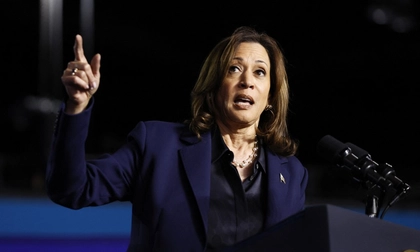The United States was imposing new visa restrictions and reviewing relations with Georgia, Secretary of State Antony Blinken said Thursday, after it pushed forward a Russian-style “foreign influence” law that triggered mass protests.
The new visa policy “will apply to individuals who are responsible for or complicit in undermining democracy in Georgia, as well as their family members,” Blinken said in a statement.
JOIN US ON TELEGRAM
Follow our coverage of the war on the @Kyivpost_official.
He added that Washington was also launching “a comprehensive review of bilateral cooperation between the United States and Georgia.”
The Georgian bill requires NGOs and media outlets that receive more than 20 percent of their funding from abroad to register as bodies “pursuing the interests of a foreign power.”
Georgian lawmakers passed the law last week despite major protests, with critics saying the move would silence opposition groups and shift the former Soviet republic away from a pro-Western course back toward Russia.
The ruling Georgian Dream party insists it is committed to joining the EU and was acting to increase transparency on NGO funding.
President Salome Zurabishvili on Saturday vetoed the law but lawmakers have the votes to override her.
Blinken specified that “anyone who undermines democratic processes or institutions in Georgia – including in the lead-up to, during, and following Georgia's October 2024 elections – may be found ineligible for US visas“ and precluded from US travel, including their immediate family members.

US-Russia Relations: Where Do Trump and Harris Stand?
Critics say the Georgia measure mirrors Russian legislation used to stifle dissent, while Brussels warns it is “incompatible“ with Tbilisi's long-standing bid for European Union membership.
Blinken said it remained the US hope “that Georgia's leaders will reconsider the draft law and take steps to move forward with their nation's democratic and Euro-Atlantic aspirations.”
“As we review the relationship between our two countries, we will take into account Georgia's actions in deciding our own.”
Georgia's ruling party has faced widespread accusations of derailing the country from its EU membership path and leading it back towards the Russian orbit.
But the party insists it is committed to EU and NATO membership – which are enshrined in the country's constitution and supported by more than 80 percent of the population.
You can also highlight the text and press Ctrl + Enter






